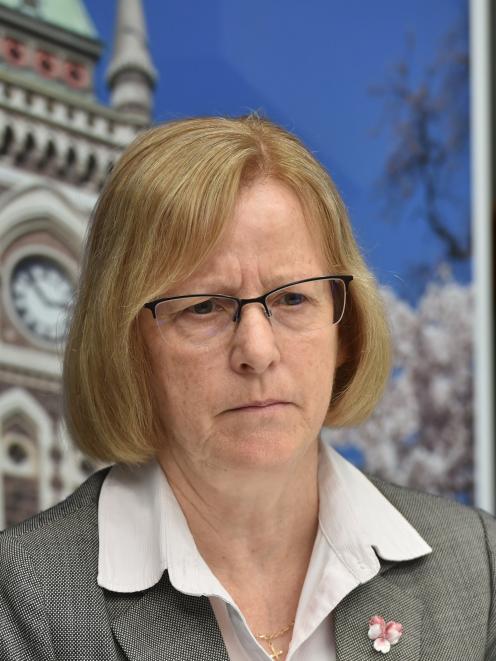
An open letter from acting vice-chancellor Prof Helen Nicholson and Victoria University of Wellington vice-chancellor Prof Nic Smith said the financial challenges facing New Zealand universities were significant and must be addressed urgently.
However the Government response so far has been muted, emphasising that universities "make their own decisions".
Universities were being forced to make choices affecting the lives of staff and students, Profs Nicholson and Smith said in their appeal to the prime minister, education minister, finance minister and the Tertiary Education Commission on Friday.
"The scale of the funding gap we face, and the fact that it will take generations to rebuild high-quality capability, means that actions today are likely to have detrimental social, economic and cultural consequences for our local communities and for Aotearoa New Zealand for many decades."
Universities carried out an important role for society, but their stability was increasingly threatened by chronic underfunding.
They needed to be funded in line with inflation to fulfil that role.
Nearly 80% of universities’ income came from the Government as funding for student tuition and research, or was controlled by the Government in the form of tuition fees.
Funding per student had been dropping in real terms for years, the letter said.
"In the last decade, it has fallen 20% in real terms compared to increases in the consumer price index.
The letter comes as Otago University is facing staff cuts of up to several hundred along with course cuts as it scrambles to save $60million, while Victoria University has warned it needs to cut up to 260 staff.
The letter said the university’s troubles were not about "budgetary responsibility or management of universities".
"Autonomy only exists when an institution has the resource to invest in the things it deems important — universities do not currently have that ability."
Another open letter from the TEU and the Victoria and Otago University Students’ Associations pushing for more funding had their full support.
The TEU and students’ associations’ letter urged "immediate and decisive action" to stop cuts and had been signed by hundreds online.
Prime Minister Chris Hipkins said yesterday the biggest funding increase to the sector in 20 years was set to begin next year.
"Universities have always had a difficult job to balance those things and it does mean that their financial position can be bumpy as they go through different cycles ...
"When they go through a downturn in enrolments they have some difficult financial choices to make."
Decisions were best taken by the institutions, he said.
Education Minister Jan Tinetti told the Otago Daily Times universities were facing a range of financial challenges due to declining enrolments and high inflation.
She did not comment on the prediction of long-term damage or whether the situation was at least partly caused by government funding issues, but said tertiary funding had risen every year and Budget 2023 provided a significant increase in recognition of current pressures.
However universities had to adjust to wider economic and societal changes.
"Universities are independent and make their own decisions about how and where they invest. This includes teaching, research, employment and properties."
The Government was committed to talking with the TEU about whether there were further ways to help universities.
An Otago University spokesman said there had not been any response to the letter.
Asked if the current problems were at least partly caused by university management, the university said it would not be commenting further.












